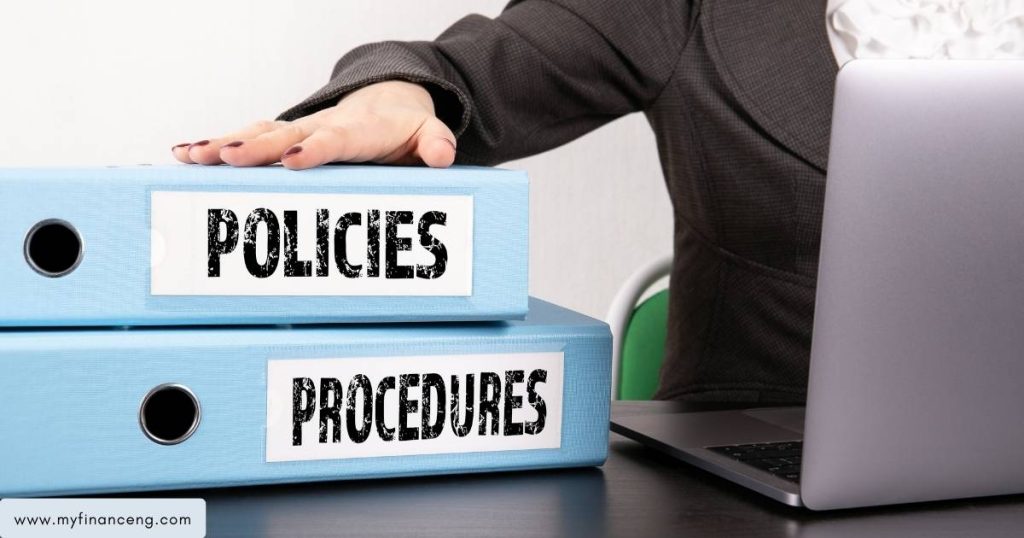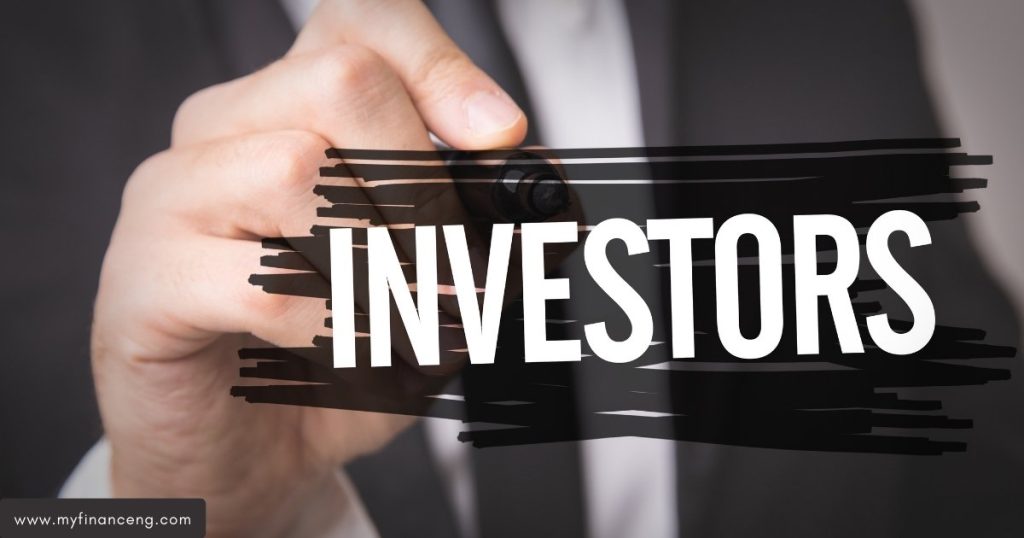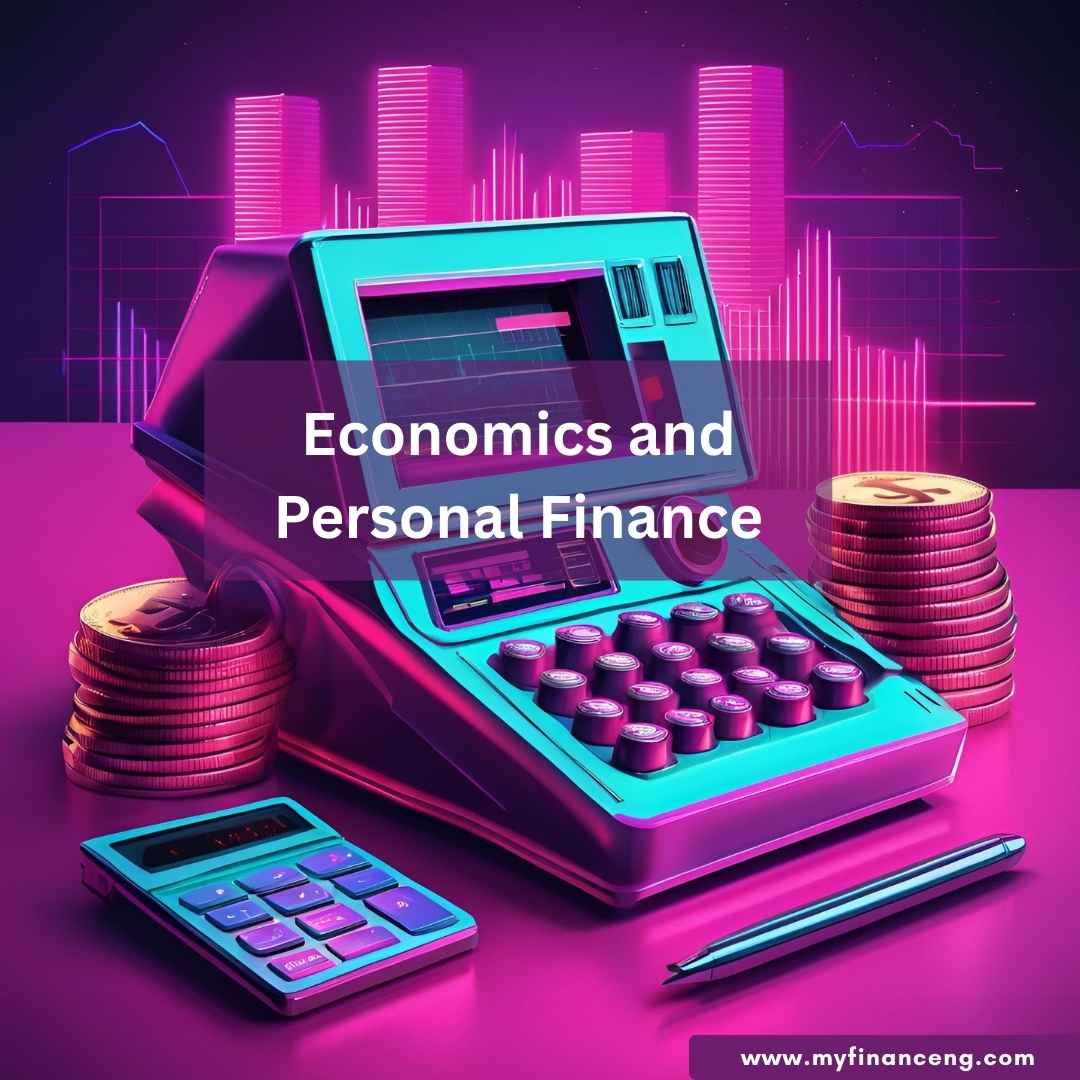Introduction
Learn how economics and personal finance work together to boost your financial success, offering key insights for smarter saving and investing.
There is more to achieving financial success than finding a high-paying job or the capacity to save. It involves grasping the large-scale economic setting in which we live.
Economics and personal Finance are intersecting domains, together shaping how people manage money, invest, and make decisions that affect their finances.
By being aware of both, you’re better able to work your finances and manage the means at your disposal.
This article will take a look at how economics and personal Finance—and specifically how economic principles—can support your efforts to make smarter personal finance decisions that will position you to enjoy financial success.
What Is Economics?
Economics is the study of the way societies allocate limited resources to satisfy people’s material needs and wants. At its heart, economics is concerned with scarcity, production, and distribution: how people make decisions when there is not enough to go around.
Economics is typically divided into two main branches: macroeconomics, which deals with the economy as a whole (covering inflation, unemployment, and GDP), and microeconomics, which examines individual and business decisions.
These economic ideas serve as a means for people to understand the world around them, including the world of making personal financial decisions.
What Is Personal Finance?
Personal Finance Personal Finance is how you manage your money, including your income, spending, saving, and investing. It spans how you allocate your income, of course, but also how you plan for the long term.
Personal Finance is to learn about where your money comes from, where it goes, and how to use it to do the best you can to reach your financial goals.
By being smart and creating a structured plan for our finances, we are the masters of our economic future as opposed to the slaves of the economy.
How the study of Economics affects your financial decisions
Economics has a lot to do with how you manage your money. The economy affects all of these things and more, from inflation to jobs to how much you’ve got saved in the bank.
For instance, in times of economic growth, when the job market is thriving and wages are on the rise, people might feel more comfortable about spending or investing.
In bad economic times, people may hold on to their money more carefully, being more in the mood for economizing than going on a spending spree. Knowing such economic trends can help people make sound personal finance decisions.
Inflation’s Impact on Personal Finance

Inflation is the increase in the prices of goods and services, which erodes purchasing power. But it also has a direct effect on personal Finance, as those in the latter situation may find that their money doesn’t go as far as it used to.
And that cost of living knows no walls. If inflation is rampant, the cost of living is as well, and it becomes increasingly hard for people to hold onto their standard of living without resorting to changing their spending or incomes.
Knowing how inflation functions can lead to better decisions about saving, investing, and managing debt.
Interest Rates: A Bridge for Investors Between Economics and Personal Finance
Interest rates are the single most influential economic factor in personal finance decisions. Lower interest rates mean cheaper borrowing, so it is more attractive to take out loans to buy homes and cars or undertake other major expenses.
Conversely, when rates are high, borrowing becomes more expensive, and consumers might pull back on big purchases or pay more of their income on debt.
An investment strategy is also concerned with interest rates as they affect the yield on savings accounts, bonds, and other fixed-income investments. Knowing the way interest rates work can enable you to time financial decisions better.
Budgeting In Economics And Personal Finance
You should budget if you want to manage your money successfully. It means monitoring how much money is coming in and out and deciding how resources should be used to meet the short- and long-term financial goals.
On the economic front, budgeting may also be indicative of broader economic tendencies like inflation or business cycles. For instance, if we were experiencing inflation, budgeting could require reducing discretionary spending due to the higher cost of goods.
An organized budget can help you weather not only your personal finance needs but outside economic situations.
Supply and Demand: And Other Economic Principles For Personal Finance
The supply and demand law is a basic economic principle with major implications for personal Finance. Supply and demand set the prices of goods and services, from grocery prices to real estate values.
When supply cannot keep up with demand, prices go up; when supply outstrips demand, prices drop.
By understanding the role of supply and demand within the market, an individual can better determine a potential investment or their financial future, particularly if they know how the stock market works.
Government Policy Impact on Personal Finance

Whether they are about tax obligations, government fiscal spending, tax cuts, or how the Federal Reserve makes money available, these are the government’s policies that affect individuals in a very concrete way.
Changes in tax rates can have an impact on take-home pay, and fiscal policies such as subsidies or public spending can determine job availability and business expansion.
Central banks also employ monetary policies to curb inflation and adjust interest rates, factors that, in one way or another, impact consumer spending and saving habits.
Knowing these rules can allow people to change their financial plans to maximize their savings and investment opportunities.
Economic Expansion and Impact on the Wealth of the Individual
Economic growth is growth in the production of goods and services over time, typically Gross Domestic Product (GDP). An expanding economy means increasing employment opportunities, rising wages, and prospering businesses— which promote rising incomes and wealth for people.
Growth in the economy paves the way for personal Finance -however, The era of personal Finance has not been stagnant; it has been quite tumultuous, and none of what was expected from the financial services industry has become a reality.
If you know how economic growth affects your finances, then you can take full advantage and make the most of the surging opportunities.
Risk Management: Where Economics and Personal Finance Meet
The art of deal assessment is an important field in both economics and personal Finance. In economics, risk can be related to changing markets, interest rates, policy shifts in Personal Finance, investment decisions, debt, and unpredictable life events.
A well-diversified portfolio, an insurance policy, and an emergency fund are among the ways people can reduce risks. That is, by learning about the influences of the economy, individuals are in a position to safeguard their wealth.
The Global Economy and Your Money
Worldwide economic settings and events outside an individual’s control can make or break personal Finance. When the global economy suffers, unemployment rates go up, income levels go down, and it will cost more to purchase goods.
Changes in overseas markets can also affect investments, especially in stocks, bonds, and commodities.
In order to adjust financial strategy and develop a more favorable position in an interlaced world, one needs to grasp the sanguine state of the global economy.
The Investor’s Factor: What Economics Teaches You About Smart Investing

Investing can be complicated, and it is important to know the ebbs and flows of markets and the economy.
Economic data, such as GDP growth, unemployment rates, and inflation, are indicators of the economy and can help gauge potential investment opportunities.
Investors can use these indicators to make better decisions about what to buy and when. Economics also gives investors insights into the risks they are taking so that they can make decisions that make sense given their financial objectives.
Savings: The Economic Principle Behind Long-Term Financial Success
When it comes to wealth building, saving is crucial — and knowledge of economic factors, like interest and inflation, can definitely improve your ability to save effectively.
The higher the interest rate, the more you can grow your savings over time — but inflation can erode the purchasing power of your savings.
Knowing how the economy affects savings rates will enable each of us to make decisions about where to save and the best way to help our money grow.
Personal Finance in a Recession: How the Great Recession Affected Retirement Planning
Recessions are times of financial struggle, but they are also times of economic opportunity for anyone with a smart head for economics and personal Finance. Jobs are lost during a recession, income levels fall, and people are pressed to tweak their financial plans, doing less spending and more saving.
Knowing the general economic trends as the country goes through a recession allows people to protect their assets and take actions that can limit their financial exposure in lean times.
INK blog- Economic Inequality and Personal Finance
Economic injustice has a significant impact on financial freedom because it makes financial resources and opportunities available to some instead of all.
If you are at the lower end of the income spectrum, you may have more difficulty dealing with debt, savings, and investment opportunities, while if you are on the higher end, you are more able to build wealth.
Solving economic inequality would entail equipping more people with financial education, policies that curb economic inequity, and ideas for managing one’s finances to jump over the hurdles standing between them and financial success.
Conclusion
But all in all, if you want to succeed with money in the long run, knowledge of both economics and personal Finance is very important. Politics determines everything from interest rates and inflation to policymaking itself, which all affect individual financial decisions.
Personal Finance, on the other hand, is the process of managing one’s resources to retain wealth, and it is focused on the individual.
By bridging the gap between the two, people are able to get the right advice and take action to make better decisions, improve their financial health, and eventually thrive.

